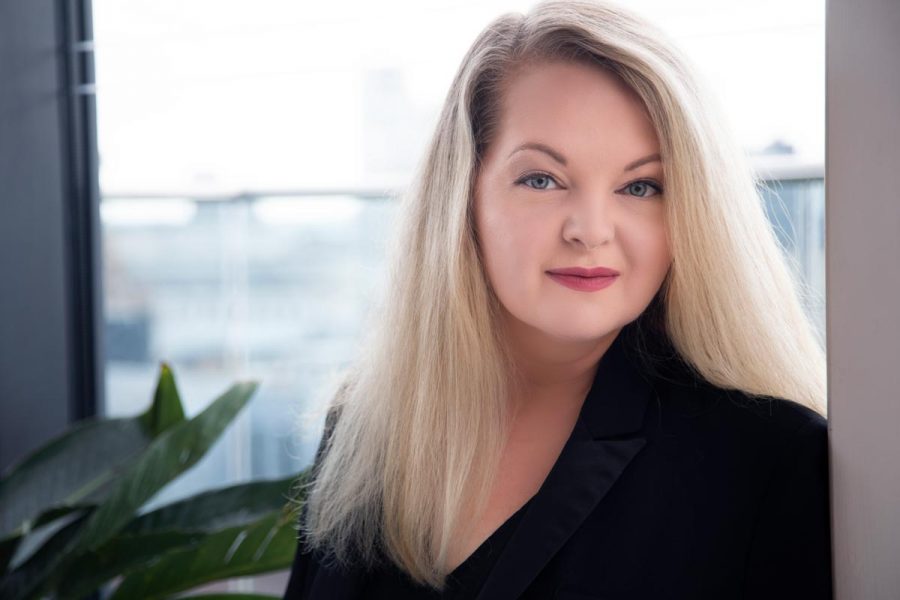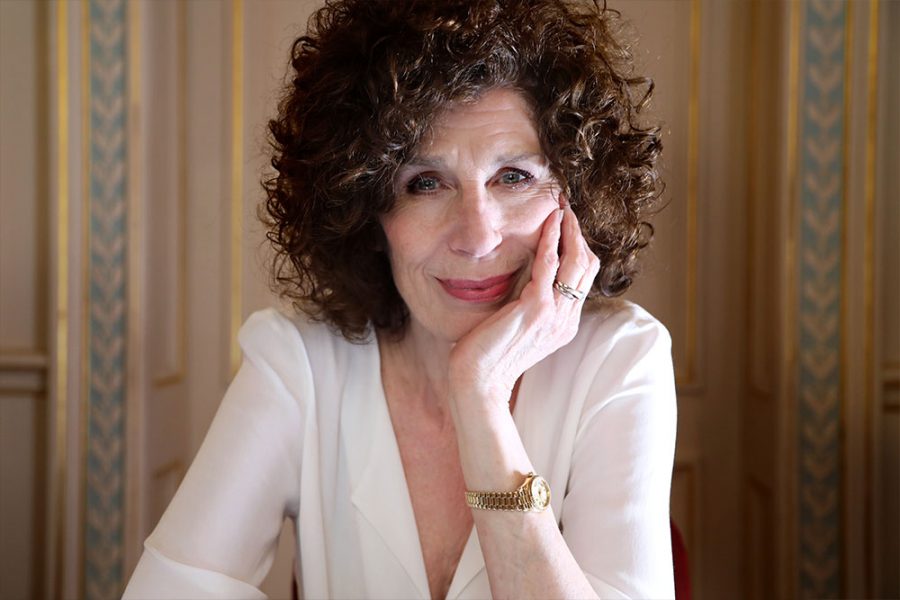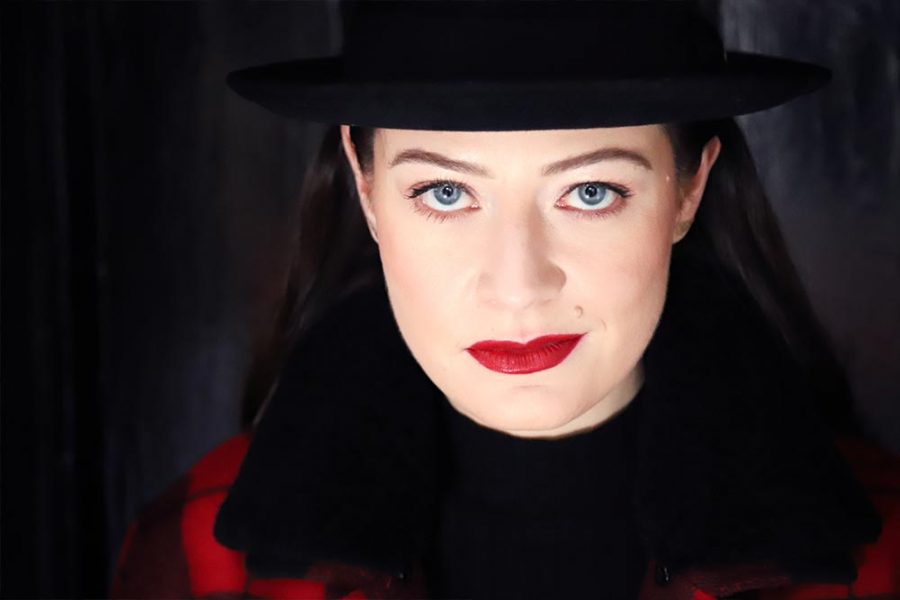From Mullingar to Covent Garden: Ailish Tynan

February 2016
Words by
Emer Nestor
Photos by
Frances Marshall
As one of Ireland’s leading sopranos, Ailish Tynan enjoys a thriving international career as an opera singer, recitalist and recording artist. Having received her musical education at Trinity College Dublin, the Royal Irish Academy of Music, and the Guildhall School of Music and Drama in London, Tynan went on to become a ‘Vilar Young Artist’ at the Royal Opera House, Covent Garden and a ‘BBC New Generation Artist’.
In 2003 she won the ‘Rosenblatt Recital Prize’ at the ‘BBC Cardiff Singer of the World Competition’. Since then, she has been invited to perform on the grand stages of some of the world’s most prestigious concert halls and opera theatres. Tynan has collaborated with orchestras such as Frankfurt Radio Symphony Orchestra, Hallé Orchestra, BBC Symphony Orchestra, London Symphony Orchestra, RTÉ National Symphony Orchestra, Philharmonia Orchestra, Orchestra dell’Accademia Nazionale di Santa Cecilia, Bournemouth Symphony Orchestra and the City of Birmingham Symphony Orchestra. Her portfolio of recordings involves labels such as Delphian, Signum Hyperion, Wigmore Hall Live, EMI, and Linn Records.
Tynan’s operatic highlights include: Gretel (Hänsel und Gretel) and Madame Cortese (Il viaggio a Reims) with the Royal Opera House Covent Garden; Gretel (Hänsel und Gretel) with Scottish Opera; Tigrane (Radamisto) with English National Opera; Papagena (Die Zauberflöte) with Teatro alla Scala; Despina (Così fan tutte) with Théâtre du Capitole de Toulouse; and Héro (Béatrice et Bénédict) with Houston Grand Opera, Opéra Comique and the Grand Théâtre de la Ville de Luxembourg.
Final Note chats with the Westmeath soprano about her musical journey from Mullingar to Covent Garden, the reality of training outside Ireland, maintaining physical and psychological balance, and her thoughts on the current opera scene in Ireland and the UK.
I was spotted for the real life changer—a place on the Young Artist Programme at the Royal Opera House."

How did the girl from Mullingar end up singing at Covent Garden?
Ha Ha! I do sometimes wonder how on earth my life turned out like this! My family wasn’t particularly musical but they are all incredibly supportive of what I do. My mother spent years trying to get me to go to piano classes but I was always missing around the time of the lesson—I was out playing—and as a result my mother would go to the lesson instead. She is probably better than I am at playing the piano!
I met some angels along the way that gave me a wonderful start: two nuns at school (Sr Áine and Sr Therese); a singing teacher in my hometown (Dorothy Horan); and Jeannie Reddin (the most influential person at the time). Without her I’m sure I would not be where I am today—she was a mentor and a truly wonderful friend. I then met Irene Sandford who gave me the final push towards London and it was there that things really took off. I studied at the Guildhall School of Music and Drama on the opera course. During my time as a student there, I was spotted for the real life changer—a place on the Young Artist Programme at the Royal Opera House. I really do look back and think how incredibly lucky I was.
Is it necessary to train outside of Ireland to make it as a professional opera singer?
Unfortunately at the moment, I think it is. However, I know that people such as Deborah Kelleher (Director of the Royal Irish Academy of Music) are doing their best to try and change this. There is SO much vocal talent coming out of Ireland at the moment…it would be wonderful if we could nurture this talent at home. Training someone to become an opera/concert/recital singer is an all-encompassing task. Having raw talent (which so many Irish singers seem to have in spades) is only the first tiny step.
Singers need to work on so many aspects of their craft:
1 Language skills (this is so important).
2 The ability to act.
3 Stage experience (understanding how things work both on and off stage).
4 Communicating with your audience.
5 Understanding different styles (for example how to sing French music and how different the approach in style is for Italianate singing).
6 Physical appearance (which is now so important in the business.)
7 Learning how to cope with the psychological demands of it all.
To become a master in even one of these categories could take a lifetime but it would be wonderful to be able to give Irish singers the best possible start in their home country.
Performing is physically and psychologically demanding — how do you look after yourself?
When I was younger I just went for it ‘hell for leather’. However, as I get older, I find that I need to take mini breaks every now and then to charge my batteries. I’m naturally a very energetic person and have a positive attitude, which is a big help in this job. I have a little dog, Jack, that I love to walk, which keeps me fit. Recently, I was asked to do a charity cycle from Oxford to London for Help the Musicians and I’m cycling about 7 miles per day in my training schedule. This is really helping with my breath control. Finding time to have fun is very important and making sure that you get as much time as you can with friends and family is often the best tonic.
If you could step into the life of any opera character, who would you choose and why?
I had to really think about this, as initially there’s not too many that spring to mind. I mean who was wants to be Butterfly, Mimì or poor Marguerite from Faust in real life? Maybe it would be Adina, as she gets her true love in the end and we can hope that she lives happily ever after.
Do you suffer from performance nerves, and if so, how do you deal with them?
In the early days I didn’t get nervous at all but now, as my career develops, I find myself getting a little bit nervous before performances—luckily nothing debilitating. I think when you’re younger you’re more motivated by bravado and possibly feel like you’ve nothing to lose. Perhaps then later, when you’re more established, you become aware of the fact that people are expecting a certain level from you. Also, I am driven by the desire to deliver my very best every time…I couldn’t do this job half-heartedly so I think that I put pressure on myself to give my best.
I am driven by the desire to deliver my very best every time."

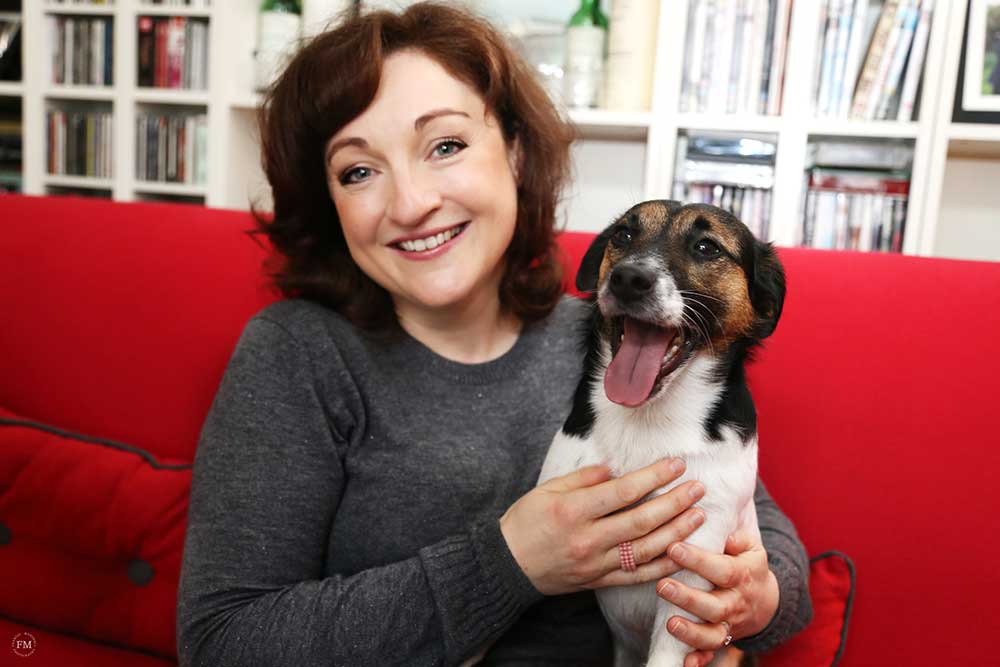


Are you interested in remaining eclectic in your repertoire choices or do you see yourself specializing in a particular genre/style in the coming years?
I think that these kind of specialisations almost pick you rather than the other way round. It’s like the ‘cream rising to the top’ theory. The things that suit you best naturally expose themselves and promoters spot your strong points. Then you naturally start to get booked for more of one thing than another. I’ve been so lucky in my career…it’s been very balanced with opera work as a result of being a young artist on the Jette Parker programme at ROH. I’ve also had a very healthy recital and concert career—probably as a result of winning the BBC Cardiff Singer of the World Rosenblatt Recital Song Prize.
I was also a ‘New Generation Artist’ with the BBC, so I had a great balance of options open to me from an early stage. This has meant that I’ve been able to work fairly steadily in all three genres throughout the course of my career so far: opera, recital and concert. Perhaps, in the coming years, I can see myself doing more recital work. It’s an incredible amount of hard work because it’s very exposed. It’s just you, your pianist and your audience…but that’s what I love about it. I love the attention to detail required in the preparation and the deep level of communication you can achieve in the intimate setting of a recital. I feel like it is music making at its most elevated and most honest.
What are your thoughts on the current opera scene in the UK and Ireland?
I think it’s really tough times for opera companies all over the world. ENO in London is having a difficult time at the moment and this has sent shockwaves throughout the arts community. I’m not sure how we can turn this around and I don’t think there’s a quick-fix solution…but I think it has to start in schools with education. I notice when I work in Germany that people have been learning about Mozart and Handel in school. We need to introduce our youth to this wonderful experience of classical music or who knows how much longer it will be with us!
Would you like to offer any advice to young sopranos who are hoping to pursue a career in opera?
Well, like I said it’s really tough out there and competition is fierce. The best advice I could give is to work as hard as you possibly can and put yourself out there for opportunities. NEVER do an audition or a performance that you’re not 110% prepared for. People have very long memories in this business and first impressions count like no other profession! You could audition for an opera house and ten years later they will remember it, so if it’s not good then, they will write you off for quite some time. If you can learn a language as part of your undergraduate studies then do it! It will be invaluable…Italian, German or French are the most useful for our careers.
List the top 5 elements that you love about your job.
1. Singing, first and foremost I love to sing.
2. Communicating—the chance to engage with people. Standing on stage and singing to an audience is a way of communicating like no other. The trust you put in them is enormous. The feeling of trying to open your soul, and hoping that they hear you, places you in a very vulnerable position. It is a unique way of bonding with people.
3. Making music with other musicians, whether it be the wonderful pianists I get to work with, like Iain Burnside and Graham Johnson, or whole orchestras. In fact one of my favourite groups to make music with are the Irish Chamber Orchestra. Their dedication to making music inspires me and I always feel like we try to create something special.
4. Recording. I love recording. You turn up in your tracksuit, as the only person you have to impress is the microphone. What I love about recording is the purity of the music-making experience. You’re not worried about your outfit, your hair, your makeup, or your staging. Your only concern is finding your truth in the music. I’ve just released a Schubert disc, Nacht und Träume, with Iain Burnside, and it’s incredible to condense years of thoughts and practice and a love of Schubert into these little nuggets of space.
5. Getting to meet and work with inspirational people who love their job. Over the years I’ve had the chance to work with so many incredible singers, musicians and promoters. I’ve made friends in London with people I’ve met through the business that I now count as family. If this career hadn’t chosen me, I would never have met these people, and they are the ones that make my life so wonderful.

What do you dislike or find challenging about the performing life?
The travel—endless packing and unpacking and going to strange cities alone. It can be so daunting to arrive alone in a country, that you don’t know, late at night where you don’t speak the language.
The loneliness. When I travel for opera the rehearsal periods can be 6 weeks long and then there might be another 2 or 3 weeks of performing. If you do 3 or 4 operas a year, this can mean that you’re away from home for up to 8 months a year. For the first 10 years I was away from home 8 months of every year. Now I find that it’s just impossible to work like this and have a home life, so I’ve changed my priorities a bit in the last couple of years and I’m much happier.
Sleeping in strange beds. I’m very fond of my own bed!
Beyond singing and music, what gives you pleasure in life?
My family, friends, my wonderful husband and little dog. These are the most precious things of all to me. I am so lucky that I do a job that I love but the most important things in my life are the people. My husband is principle bass Trombone at the Royal Opera House. We met when I was working there as a freelance artist and I’m extremely lucky to have someone who understands the demands of the career so well.
You’ve 20 minutes left on a packed commuter train, Spotify has crashed and you only have access to 3 pieces to ease the torture — what would you choose and why?
Because I can often be exposed to music for 6 hours a day in rehearsal I have to be honest and say that sometimes 20 minutes of silence is bliss but if I had to choose…it would be Richard Strauss—the four last songs No. 3. It just makes my soul soar! Anything by Schubert…but maybe something like ‘Wanderers Nachtlied’ 2…. Schubert has the ability to capture everything that is so precious about music…even in one page of music. He can utterly move us with so little—a sign of a true genius. And finally, ‘Share my Yoke’, with the Black Dyke Band and Jimmy Watson playing the cornet. If you listen to this piece of music, you will see how it could ease your senses in any situation!
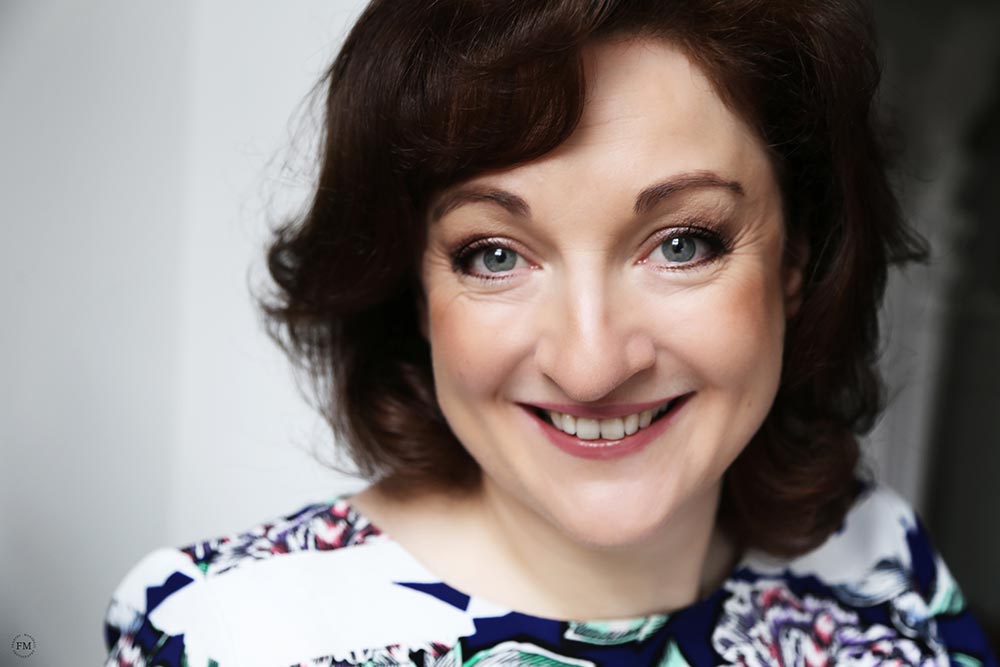


As busy musicians, how do you and your new husband find quality time to spend together?
We do have to make a conscious effort to find the time. When we do have time off together, we try to make it really count! In this way, I think we’re luckier than couples that spend every evening together. If you only have a couple of evenings a week, then those evenings really matter and we’re inclined to always do something. We both love eating so we plan romantic meals, and we love going on country walks and cycles.
What are your plans for 2016?
2016 is looking as busy as 2015 was, which is great! I have several concerts at Wigmore Hall. If music were a religion then Wigmore Hall would be Westminster Cathedral, so to have several concerts there this year is a huge joy for me. One of them is particularly exciting—I’m performing a new commission written especially for me by Judith Weir. I have lots of home dates next year, which is always something I look forward to. I’ll be returning to work with the wonderful Irish Chamber Orchestra, the RTÉ National Symphony Orchestra, the Ulster Orchestra and the Kilkenny festival. I’m also excited about returning to the Royal Opera House in Covent Garden in the Autumn.
Ailish Tynan is represented by SSArtists worldwide. For more information see: www.ssartists.co.uk/artist/ailish-tynan
All content and imagery displayed within this article is subject to copyright.
Share this article


